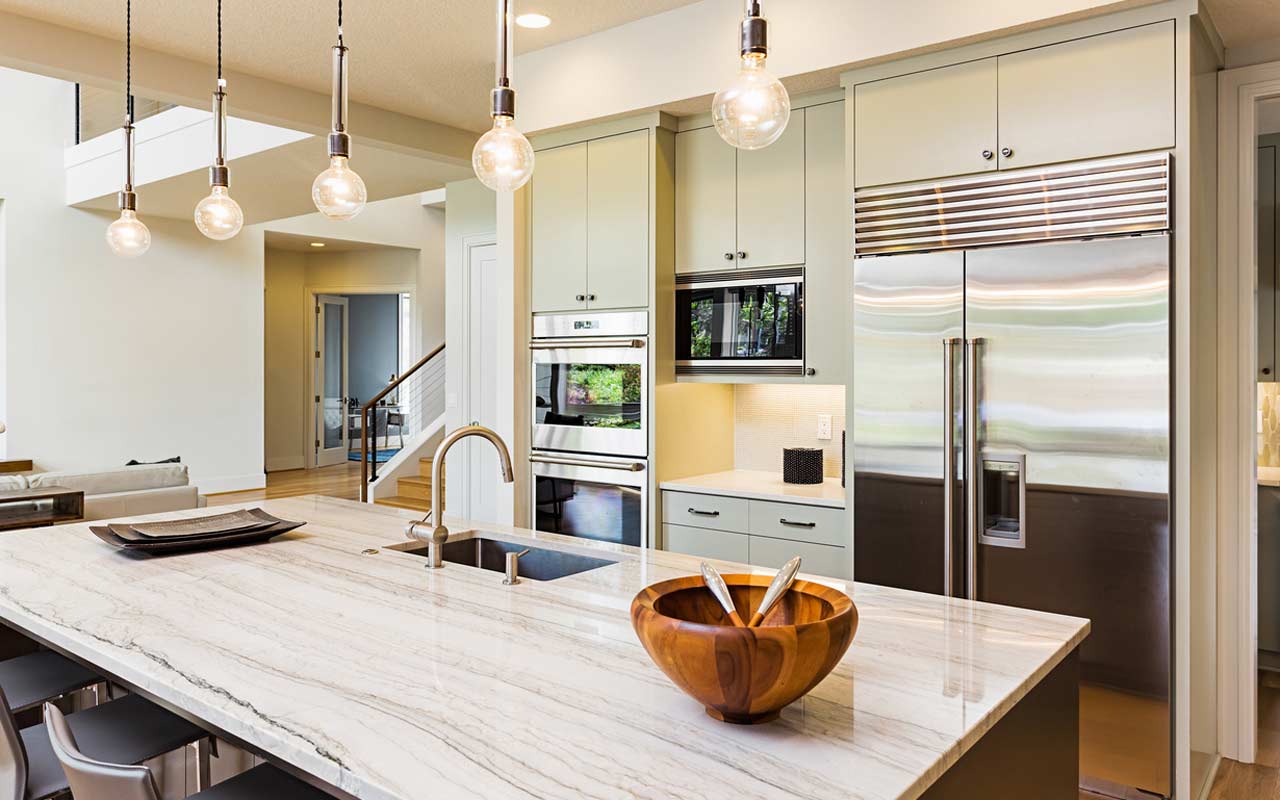Oven vs Air Fryer: Which is Cheaper for Home Cooking?
See if an air fryer can beat your oven for kitchen savings.

Erin Bendig

Profit and prosper with the best of Kiplinger's advice on investing, taxes, retirement, personal finance and much more. Delivered daily. Enter your email in the box and click Sign Me Up.
You are now subscribed
Your newsletter sign-up was successful
Want to add more newsletters?

Delivered daily
Kiplinger Today
Profit and prosper with the best of Kiplinger's advice on investing, taxes, retirement, personal finance and much more delivered daily. Smart money moves start here.

Sent five days a week
Kiplinger A Step Ahead
Get practical help to make better financial decisions in your everyday life, from spending to savings on top deals.

Delivered daily
Kiplinger Closing Bell
Get today's biggest financial and investing headlines delivered to your inbox every day the U.S. stock market is open.

Sent twice a week
Kiplinger Adviser Intel
Financial pros across the country share best practices and fresh tactics to preserve and grow your wealth.

Delivered weekly
Kiplinger Tax Tips
Trim your federal and state tax bills with practical tax-planning and tax-cutting strategies.

Sent twice a week
Kiplinger Retirement Tips
Your twice-a-week guide to planning and enjoying a financially secure and richly rewarding retirement

Sent bimonthly.
Kiplinger Adviser Angle
Insights for advisers, wealth managers and other financial professionals.

Sent twice a week
Kiplinger Investing Weekly
Your twice-a-week roundup of promising stocks, funds, companies and industries you should consider, ones you should avoid, and why.

Sent weekly for six weeks
Kiplinger Invest for Retirement
Your step-by-step six-part series on how to invest for retirement, from devising a successful strategy to exactly which investments to choose.
Hikes in energy costs have ignited an interest in air fryers, but are they worth the hype? Keep your energy costs low with the guidance below.
Considering the average monthly electricity bill for residential customers in the United States increased 13% from 2021 to 2022, it’s no shock that households are being convinced of the long-term value of an air fryer. According to Bankrate, the typical American household spends $1,644 annually on electricity bills alone.
However, if you take into account upfront purchase costs and the amount of food you want to cook, along with other factors, the air fryer might not be cheaper than a conventional oven.
From just $107.88 $24.99 for Kiplinger Personal Finance
Become a smarter, better informed investor. Subscribe from just $107.88 $24.99, plus get up to 4 Special Issues

Sign up for Kiplinger’s Free Newsletters
Profit and prosper with the best of expert advice on investing, taxes, retirement, personal finance and more - straight to your e-mail.
Profit and prosper with the best of expert advice - straight to your e-mail.
Our friends at The Money Edit put the oven vs the air fryer to the test to find out which is cheaper.
But first, consider our other articles about home energy savings.
- Electric Heaters vs Radiators
- Wood Burning Stove vs Central Heating
- Fan Heaters vs Oil Heaters
- Dishwasher vs Hand Washing
Oven: Cost to run
Out of most kitchen appliances, including the microwave, oven and air fryer, the oven is known to be the most expensive to use. On average, conventional ovens use between 2,000 to 5,000 watts of energy according to Direct Energy. But this depends on the temperature you have the oven on, as the higher the temperature, the more energy it requires to heat up the oven.
Calculations done by EnergyBot found the following for average oven usage costs:
| Header Cell - Column 0 | Usage | Cost |
|---|---|---|
| Day | 3 kWh | $0.30 |
| Month | 91.2 kWh | $9.13 |
| Year | 1094 kWh | $109.51 |
The great thing about ovens is they can cook a lot of food at once. With most ovens having two to three shelves, you can put a tray of lasagna on one and garlic bread on another so it cooks at the same time. For this reason, it's worth looking at what works for your household — the quantity you’re cooking and portion sizes. A meal that you could fit in the oven all at once, with a 30-minute cooking time, might require more work in the air fryer.
But do be wary, heat is lost easily with an oven, so you should take that into account too.
Yahoo Finance reports that you lose 50% of your oven heat every time you open the oven door, so even if you open the oven briefly, it'll use more energy to get back to its desired temperature. There’s also the pre-heat time to take into account. It’s wise to know how long this takes, so you can put your food in as soon as you can to save energy.
Air fryer: Cost to run
The cost of running an air fryer depends on a few factors, like how powerful it is, its capacity and how long you cook in it.
TechRadar reports that an average air fryer with a wattage of 1500, used for 30 minutes will consume 0.75 kWh. Meanwhile, an average oven that has a wattage of 3000 will use 1.5 kWh during the same 30 minute period. Air fryers range from 800 watts to 2,000 watts, and the more powerful, the pricier it is to run.
The purchase cost of an air fryer can vary from as low as $100 to anything around $500, according to Today. The brand you pick and how powerful it is plays a big part in the price.
Your household dynamic will make a difference. Take into account how many people you live with and cook for as well as the size of your portions.
Although air fryers cook at a lower cost, it’s a small compartment to put food in and might require you to cook in two to three rounds, costing you double or even triple.
Most air fryers suggest they cater for three to four people, but it is quite general and depends on what you’re cooking. Only you know how the portion sizes work in your home.
If you want to spend more on a bigger-sized compartment or even get a dual air fryer that comes with two compartments you could benefit. However, these models are pricier and also cost more to run, as they require double the energy.
The verdict
Generally, an average air fryer is cheaper to use than an average oven. The difference is about 50% less total energy used, without even taking into account the shorter time needed to cook in an air fryer vs an oven.
But if you own an air fryer that is much more powerful, you could use nearly the same energy as an oven.
And the main factor is the amount of food you’re cooking. If you know one compartment in an air fryer won’t suffice for your family in size, you might be better off using the oven where you can cook the food in one go, rather than in two to three different intervals. Just don't open the oven door until it's ready.
With air fryers, don’t forget add on the initial purchase price to your price savings comparison. Black Friday and Cyber Monday sales are a great time for deals that will add to the cost savings over the life of the air fryer. Currently, you can score a 6.3-Qt 4-In-1 Digital Air Fryer on Amazon Outlet for over 50% off.
Related Content
Profit and prosper with the best of Kiplinger's advice on investing, taxes, retirement, personal finance and much more. Delivered daily. Enter your email in the box and click Sign Me Up.

Ben Demers manages digital content and engagement at Kiplinger, informing readers through a range of personal finance articles, e-newsletters, social media, syndicated content, and videos. He is passionate about helping people lead their best lives through sound financial behavior, particularly saving money at home and avoiding scams and identity theft. Ben graduated with an M.P.S. from Georgetown University and a B.A. from Vassar College. He joined Kiplinger in May 2017.
- Erin BendigPersonal Finance Writer
-
 Ask the Tax Editor: Federal Income Tax Deductions
Ask the Tax Editor: Federal Income Tax DeductionsAsk the Editor In this week's Ask the Editor Q&A, Joy Taylor answers questions on federal income tax deductions
-
 States With No-Fault Car Insurance Laws (and How No-Fault Car Insurance Works)
States With No-Fault Car Insurance Laws (and How No-Fault Car Insurance Works)A breakdown of the confusing rules around no-fault car insurance in every state where it exists.
-
 7 Frugal Habits to Keep Even When You're Rich
7 Frugal Habits to Keep Even When You're RichSome frugal habits are worth it, no matter what tax bracket you're in.